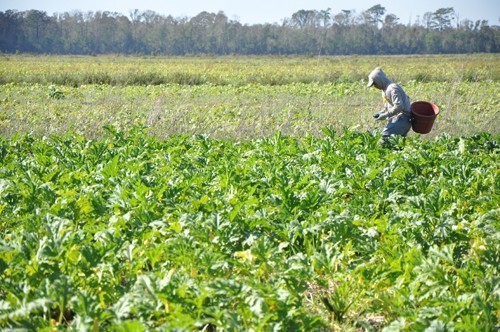DENVER – More than 90 percent of the corn, cotton and soybeans planted in the United States is genetically engineered, according to the United States Department of Agriculture. Colorado voters will decide Tuesday whether such food sold in their state must be labeled to clearly state that it contained genetically modified organisms, or GMOs.
If the measure passes, Colorado will become the one of the first states to require labeling on products containing GMOs. Vermont passed a similar law, but it will not go into effect until July of 2016, the same as the Colorado bill.
Proposition 105 would require those products containing GMOs to be labeled “Produced with Genetic Engineering.” GMOs are organisms whose DNA has been combined with that of another organism in order to produce certain desired traits. The GMO crops that would be subject to this bill are designed to repel insects or resist weed-killing herbicides.
Supporters of the measure say that Coloradans have a right to know whether these organisms, which the Grocery Manufacturers Association says are in 70 to 80 percent of the foods Americans eat, are in the products they buy. They point to the fact that public health organizations around the country support the effort to label GMOs, including the American Public Health Association and the American College of Physicians, as well as the fact that 64 countries around the world currently require the labeling, including all EU member countries, Australia, Japan and Brazil.
On the other side, the primary argument is one of price. Opponents say that the measure would raise the cost of groceries to Colorado families by up to $500 a year. To back up that claim, they point to a Cornell University study on a similar law proposed in New York using New York prices and consumer data. There’s little doubt that relabeling foods for Colorado would pass some costs on to its consumers, but what that cost would be depends on whether Coloradans choose to buy organic groceries or stick with the GMOs, and whether manufacturers switch to pricier ingredients to avoid the labels. Another study from Consumer Reports that used data from Oregon found that the cost would be around $2.30 per person per year.
Opponents also point to the fact that the World Health Organization has found GMOs to be no more dangerous than organic foods.
“[GMOs] currently available on the international market have passed safety assessments and are not likely to present risks for human health. In addition, no effects on human health have been shown as a result of the consumption of such foods . . . ” the WHO said on its website.
Colorado’s proposal has a lot more money betting against it than for it. . The supporters’ campaign, Right to Know, has raised just over $900,000, according to the Colorado Secretary of State’s office. No on 105 has raised over $16 million, including nearly $5 million from agriculture giant Monsanto, said to be the nation’s biggest producer of genetically modified seeds.

